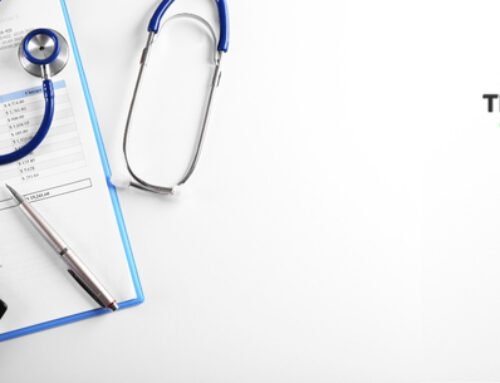The signs and causes of a global COVID-19 outbreak worry many people. . COVID-19 spreads through the air. High body temperature, coughing, and shortness of breath are typical manifestations. Diarrhea is not agreed upon as being a symptom of COVID-19. We will explain the connection between diarrhea and COVID. For those who may worry about catching the diarrhea disease.
Coronavirus and Diarrhea:
Those with a more severe COVID-19 infection are more likely to experience diarrhea. WHO reports that 25% of those infected with COVID-19 experience gastrointestinal symptoms. The first and only symptom of COVID-19 is diarrhea.
What causes COVID-19 patients to get diarrhea?
Doctors are still trying to understand how COVID-19 causes diarrhea. But they think it might have to do with a special part in our stomachs called ACE2 receptors. The virus can attach to these receptors and hurt our stomachs, which can lead to diarrhea.
Other gastrointestinal symptoms caused by COVID-19:
Doctors have found that COVID-19 can cause problems with our stomachs and make us feel sick. Some of these problems include diarrhea. Feeling like you want to throw up, having a sore stomach, and stomach cramps.
What causes diarrhea?
Millions of people throughout the world suffer from diarrhea every year. It’s characterized by diarrhea that occurs three times a day or more and is loose and watery. Many different things, such as germs, food, medicine, or illness, can bring on diarrhea.
Infections:
Diarrhea almost always has an infectious cause. Norovirus, rotavirus, and adenovirus can cause diarrhea. There are many bacteria that can disrupt your digestive system. And lead to diarrhea, including Escherichia coli (E. coli), Salmonella, and Shigella. An infection with a parasite, such as Giardia or Cryptosporidium. It can cause diarrhea that lasts for days or weeks.
Dietary changes:
Dietary shifts can also precipitate the onset of diarrhea. Consuming too much fiber, fat, or spicy/oily foods can all lead to diarrhea. Sometimes eating certain foods can make our tummies upset and cause diarrhea. Two types of food that can do this are lactose and gluten.
Medications:
Some medicines frequently cause unpleasant side effects like diarrhea. Antibiotics, which can alter the normal gut bacteria, are a common cause of diarrhea. Diarrhea can also caused by taking laxatives, antacids, and chemotherapy treatments.
Underlying medical conditions:
Diarrhea could be a sign of a more serious health issue. Chronic diarrhea causes loose, watery stools. And its causes include irritable bowel syndrome (IBS), celiac disease, and intestinal inflammation. Several endocrine conditions, such as hyperthyroidism and diabetes, can also trigger diarrhea.
Prevention and treatment:
Doctors can only treat and prevent diarrhea if they know what causes it. One can lessen their vulnerability to infectious diseases by practicing sound hygiene habits. Like frequent hand-washing and avoiding the consumption of questionable water and food.
Changing your diet to exclude diarrhea-inducing foods is one option. A doctor can alter or replace medications that cause diarrhea. Medication and behavioral modification can cure underlying medical disorders.
Read More: How fast can food give you diarrhea?
How to stop diarrhea?
Drinking Enough Water:
When dealing with diarrhea, keeping yourself hydrated is crucial. Dehydration, brought on by diarrhea’s fluid loss, might exacerbate symptoms. You can replace the lost fluids by drinking lots of water. Clear broth or electrolyte-rich drinks like sports or coconut water.
Adjusting What You Eat:
Diarrhea sufferers can also find relief by making dietary changes. Dairy products, spicy foods, coffee, and alcohol can worsen diarrhea. So avoiding them can help reduce symptoms. Bananas, rice, applesauce, and bread are bland foods. That helps firm loose stools and prevent diarrhea.
Seeking Medical Care:
Diarrhea that lasts longer than a few days requires quick medical intervention. With Telehealthdr, you can get medical attention without leaving the house. Telehealth consultations allow you to speak with a doctor. Who can determine the root of your diarrhea and provide a solution? The doctor may prescribe antibiotics and anti-inflammatory drugs to help with the symptoms.
Severe instances may cause hospitalization for treatment of dehydration and other consequences. If you have persistent diarrhea or other worrying symptoms. You should immediately consult a doctor. Get the attention you need without leaving your house thanks to Telehealthdr
Is diarrhea a sign of early pregnancy
Early pregnancy symptoms may include diarrhea. Yet, this symptom is not a 100% reliable predictor. Pregnancy hormones can alter the digestive system’s pace. Affecting how often you go to the bathroom. At the beginning of their pregnancies, some women have diarrhea. At the same time, others have constipation or no changes.
Other Signs of Early Pregnancy:
When a woman is pregnant, she might have signs showing she’s expecting a baby. Some of these signs include feeling sick, throwing up, and feeling very tired. Having sore breasts and going to the bathroom a lot. Also, a woman might not have her period when she’s pregnant.
What to eat when you have diarrhea
The following is a list of what you ought to consume while you are suffering from diarrhea.
Eat a simple, bland diet:
Diarrhea sufferers should stick to bland, digested foods. Common examples include white rice, boiled potatoes, bread, and crackers.
Consume items rich in probiotics.
If you have diarrhea, eating probiotics can help you feel better. Probiotics are special kinds of germs. That can help your stomach have the right amount of healthy germs. This can make your tummy feel better.
Be sure to hydrate well:
Water intake is especially important for those with diarrhea. Because of the loss of fluids and electrolytes. Hydrate by drinking lots of fluids, particularly electrolyte-rich fluids like sports drinks. And coconut water and clear broths.
Do not eat these things:
Certain foods can bring on or worsen diarrhea, so it’s best to stay away from them. These include foods with a high fiber content, such as nuts and seeds. As well as raw fruits and vegetables and foods with a high spice and fat content.
Taking Vitamins and Minerals:
You can prevent further diarrhea by taking a fiber supplement or psyllium husk to help bulk out your stools. But before taking any supplements, it’s best to talk to your doctor.
How long does diarrhea last
Diarrhea affects people of all ages and backgrounds. Viruses, bacteria, and some medicines can all have a role in triggering this condition. Which manifests itself in diarrhea that is too loose or watery.
Acute diarrhea:
An infection causes acute diarrhea and normally lasts only a few days to a week. Most patients will improve without any treatment at all.
Intractable Diarrhea
However, chronic diarrhea can persist for months at a time. It is often a sign of a more serious problem. Such as inflammatory bowel disease, celiac disease, or irritable bowel syndrome.
The dreaded case of the traveler’s tummy:
Diarrhea is a typical problem for tourists visiting third-world countries. Tainted food or water consumption is the root cause of this life-threatening illness.
Diarrhea brought on by medicine:
Diarrhea is a common adverse reaction to several drugs, including antibiotics and laxatives. Taking the medication no longer causes the diarrhea to persist.
What is watery diarrhea a sign of
Suppose you have runny poo (pooping water) that looks like watery diarrhea. It might mean that there’s something wrong with your tummy. This could be because of germs or sickness in your tummy. Or because of certain medicines you take or other health problems. If you have yellow diarrhoea, explosive diarrhea, or keep being watery. For more than a few days and you feel sick in other ways, you should see a doctor to get better.
Is frequent diarrhea a sign of cancer
Sometimes, when you have diarrhea often, it might mean that you have a type of sickness called cancer. Colon and pancreatic cancer are two types of cancer that can cause diarrhea. But many other things can make you have diarrhea a lot too. If you’re worried about your diarrhea or how it’s making you feel, you should talk to a doctor or nurse who can help you.
What can you eat after food poisoning?
After getting sick from bad food, it’s a good idea to eat foods that are easy to digest and don’t have a lot of flavor or spices. Some foods that are good for this are bananas, rice, applesauce, and toast. It would be best to drink clear things like water and broth. But it’s not a good idea to have things like milk, coffee, or greasy or spicy foods until you start to feel better.
Conclusion:
However, diarrhea is still possible, though it is a less common symptom of COVID-19. Diarrhea is a serious sign of COVID-19 infection. Therefore if you have it, you should get medical help right away. In general, it helps if you drink plenty of fluids and stay away from foods that may exacerbate diarrhea. If you’re worried about your symptoms, the best thing to do is consult a doctor.
FAQS
How do I stop COVID-related diarrhea?
One of the most typical solutions for loose motion, liquid stools is anti-diarrhea medication.
What are some quick remedies for diarrhea?
To rehydrate, try drinking water, Pedialyte, fruit juice, and caffeine-free soda.
When will my diarrhea stop?
Acute diarrhea typically resolves itself within two days.
Can yogurt cure diarrhea?
You may find relief from diarrhea by eating a probiotic-rich yogurt.






Leave A Comment